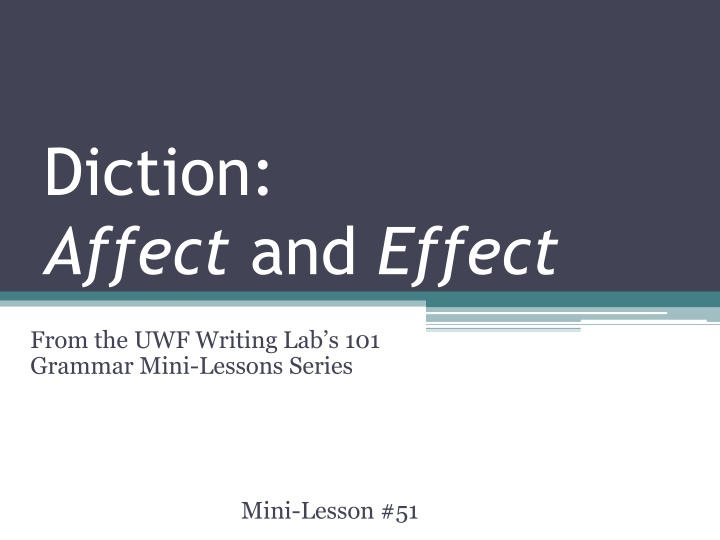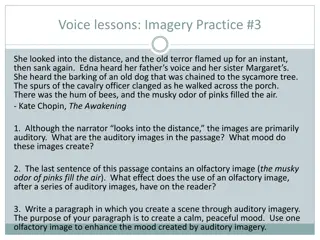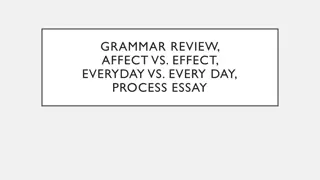Diction: Affect vs. Effect
Affect and effect are commonly confused words in the English language. Affect is typically used as a verb meaning to influence or alter, while effect is a noun denoting a result or consequence. This mini-lesson provides clear examples and explanations to help grasp the difference between these two terms.
Uploaded on Feb 28, 2025 | 1 Views
Download Presentation

Please find below an Image/Link to download the presentation.
The content on the website is provided AS IS for your information and personal use only. It may not be sold, licensed, or shared on other websites without obtaining consent from the author.If you encounter any issues during the download, it is possible that the publisher has removed the file from their server.
You are allowed to download the files provided on this website for personal or commercial use, subject to the condition that they are used lawfully. All files are the property of their respective owners.
The content on the website is provided AS IS for your information and personal use only. It may not be sold, licensed, or shared on other websites without obtaining consent from the author.
E N D
Presentation Transcript
Diction: Affect and Effect From the UWF Writing Lab s 101 Grammar Mini-Lessons Series Mini-Lesson #51
Affect In ordinary usage, the word affect is used as a verb meaning to influence, to alter, to change, or to pretend to have or feel. Drinking alcohol can affect your body s response time.
Effect The word effect is used as a noun meaning result or consequence. The word effect is also used in formal English as a verb meaning to bring about or to make happen. The effects of the hurricane were visible the next morning when the sun rose.
Examples: The noise affects my concentration. I refused to let her grouchiness affect me.
More examples: His speech had a positive effect on the audience, His threats had no effect on the people upstairs. The organization has effected a remarkable change in its prot g s. The President has effected a new tax program.























